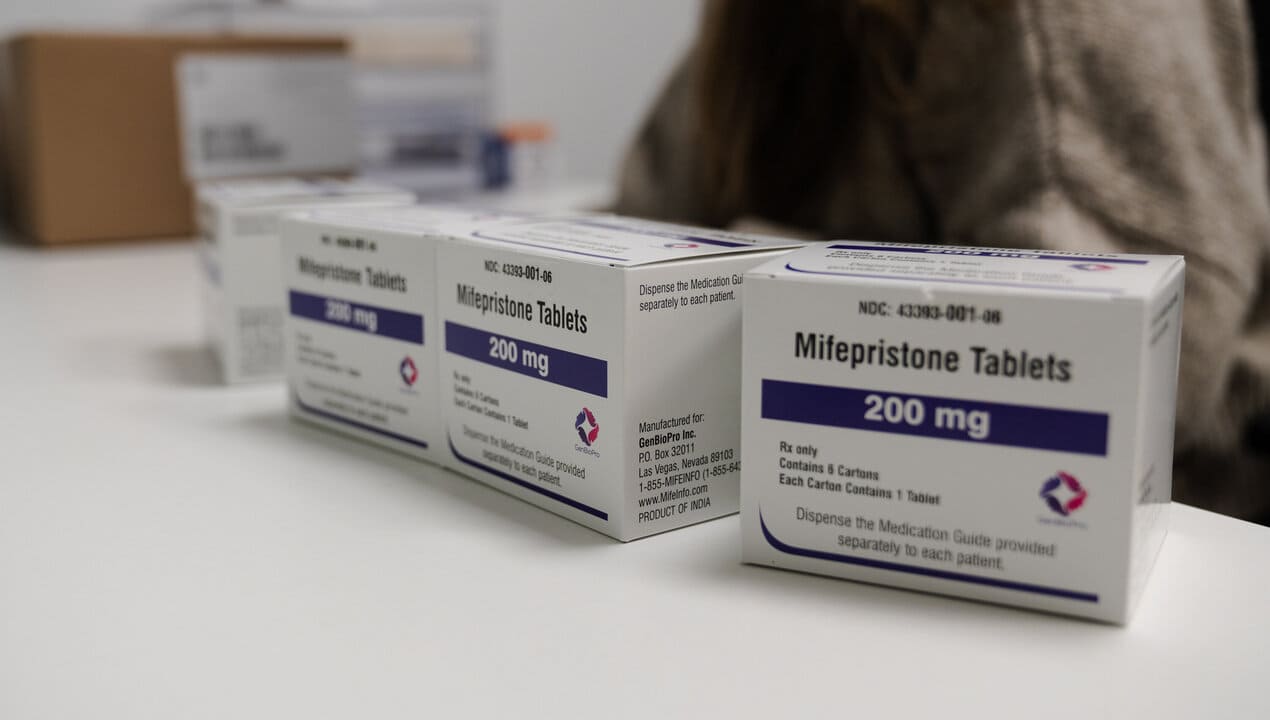
Independent Report – Costco Wholesale has announced that it will not offer the abortion pill mifepristone at its more than 500 pharmacy locations. According to a report by Bloomberg News. The decision has drawn attention as the retailer continues to expand its health services. Yet chooses to exclude a widely discussed medication. The company did not provide detailed reasoning beyond stating that it has not observed consumer demand for the pill.
Bloomberg News reported that the decision came after advocacy from a group of faith-based activists who encouraged Costco to refrain from selling mifepristone. However, the retailer did not confirm whether the activists influenced its final choice. Costco’s statement on the matter was brief, focusing primarily on the reported lack of consumer interest. Leaving open questions about other potential factors that may have contributed to the decision.
Requests for comment from Danco Laboratories, the manufacturer of the abortion pill, and from Costco, were not immediately answered. Danco Laboratories produces the medication regimen used for medical abortions. Which has been approved in the United States for over two decades. Despite its long-standing approval, availability of the medication at large retail pharmacy chains remains limited. And decisions by major retailers such as Costco can influence public access to the treatment.
Also Read : Environmental Groups Sue Trump Over Secret Climate Report
Mifepristone is a key component in medical abortion procedures and is typically used together with another medication, misoprostol. The two drugs work in sequence to safely terminate a pregnancy within the first ten weeks of gestation. Mifepristone functions by blocking the hormone progesterone, which is necessary for maintaining the uterine lining during early pregnancy. Once the lining breaks down, misoprostol is administered to induce uterine contractions and complete the process.
The FDA initially approved mifepristone in 2000, and since then, it has become a widely used option for those seeking a non-surgical method of abortion. Despite its approval and medical endorsement, the availability of mifepristone has often been subject to regional, political, and commercial considerations. Some pharmacy chains, particularly those with large customer bases like Costco. Face public scrutiny and advocacy pressures that can influence whether the medication is stocked and dispensed.
Costco operates hundreds of pharmacy locations across the United States and is known for offering a wide range of health products and prescription medications. The company’s decision not to carry mifepristone highlights the complex intersection of consumer demand, corporate policy, and societal debates surrounding reproductive health. While some advocacy groups emphasize broader access to the medication, others, including certain faith-based organizations. Advocate for limiting its availability in retail settings.
Medical experts note that access to mifepristone remains a crucial aspect of reproductive healthcare. The medication is considered safe and effective when used under the guidance of a licensed healthcare provider. It allows individuals to manage early-stage pregnancies in a private and medically supervised manner. By not offering the pill, Costco’s pharmacies may affect convenience and accessibility for some patients who rely on large retail chains for their prescription needs.
The decision also reflects ongoing tensions in the healthcare sector regarding reproductive services. Retail pharmacies, while primarily commercial entities. Are often at the center of debates involving ethics, consumer choice, and public health policy. Costco’s move could influence other retailers in their approach to stocking sensitive or controversial medications, shaping the availability of reproductive health options on a broader scale.
While Costco has stated that consumer demand for mifepristone is low. The company did not provide statistics or data to support this claim. Analysts suggest that the absence of the medication from such a widely visited retailer could affect public perception and access, even in regions where the pill is legally permitted. Meanwhile, patients seeking mifepristone may need to explore alternative sources, including specialized clinics or other pharmacy providers.
In conclusion, Costco’s choice not to sell mifepristone at its pharmacy locations underscores the multifaceted issues surrounding medical abortion in the United States. Factors such as advocacy pressure, corporate policy, consumer demand, and social debate all contribute to decisions regarding the availability of reproductive health medications. As public discussions continue and healthcare needs evolve, the availability of mifepristone at major pharmacy chains remains a topic of significant interest and scrutiny.
Also Read : Buzz! Grok Imagine AI Considered Capable of Creating Sexual Content